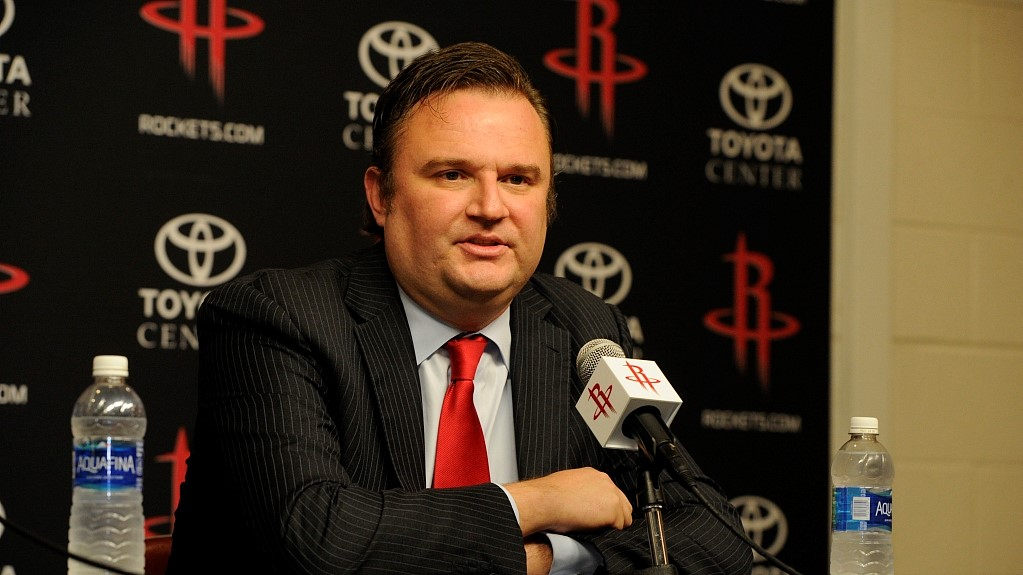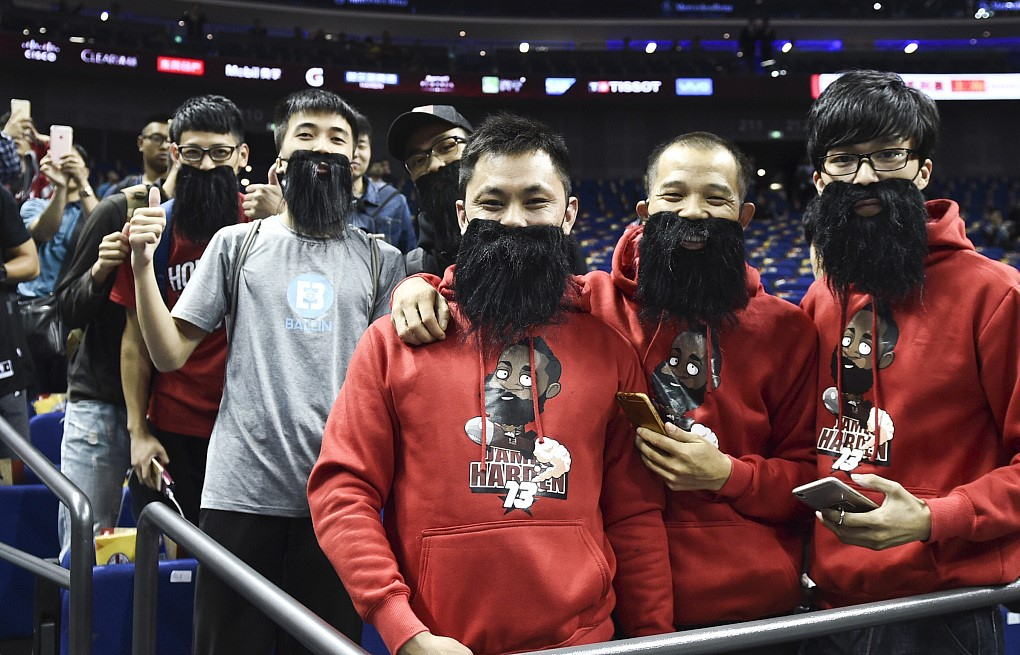
Daryl Morey, general manager of the Houston Rockets. /VCG Photo
Daryl Morey, general manager of the Houston Rockets. /VCG Photo
Editor's Note: Tom Fowdy is a British political and international relations analyst and a graduate of Durham and Oxford universities. He writes on topics pertaining to China, the DPRK, Britain and the United States. The article reflects the author's opinions, and not necessarily the views of CGTN.
A firestorm emerged on Twitter over the weekend after Daryl Morey, an executive for the American National Basketball Association (NBA) team the Houston Rockets, tweeted what appeared to be support for the riots in Hong Kong.
Chinese basketball officials reacted negatively to the development and threatened to cut all ties with the club, which is hugely popular in China owing to the legacy of the legendary Chinese basketball star Yao Ming playing for them. Chinese netizens on Weibo subsequently threatened to boycott the club.
In response to the backlash, Morey quickly retracted his remarks, and the team as a whole was quick to announce that it had taken no official position on the matter whatsoever, and that his marks were not representative.
The result prompted an outrage from some voices in the United States, including from its Washington-centric "China watcher" community who moved to make accusations that businesses were "self-censoring" to suit the interests of China. Some more fanatical voices called for the NBA as a whole to offer blanket support for events in Hong Kong.
The whole situation is ridiculous. Sports are conventionally, apolitical. Political neutrality is not self-censorship. Designed instead to bring people together in a fair, competitive and diplomatic spirit, it has never been compatible with contentious political topics which have a tendency to divide and anger audiences.
The NBA is a powerful tool of American soft power which is revered by millions of Chinese people. By pushing it to take a side, not only are certain analytical communities inherently disrespecting the interests of American organizations, but also destroying their own country's cultural successes accordingly.

Chinese fans wear the signature beard of James Harden, the No. 1 player of the Houston Rockets. /VCG Photo
Chinese fans wear the signature beard of James Harden, the No. 1 player of the Houston Rockets. /VCG Photo
Throughout the world, most major sporting organizations and institutions have strict regulations of conduct restricting political expressions, symbolism and causes in their games. The logic behind it is that failure to adhere such is likely to ruin the spirit of sportsmanship by creating division, anger and contention among its audience - unwanted and unhelpful distraction from the main event.
Sports are, in principle, idealized to bring people together through good spirited competition, unite communities, and thus build bridges. In many ways, it is a tool of diplomacy.
For example, when a political protest swept America's sports whereby African-American players kneeled to the country's national anthem, most prominently affecting American football, the NBA sent guidelines to its teams and players urging them not to get involved in it.
Are we to describe this as an act of self-censorship? Of course not, it is an act of political neutrality. It is worth noting that players in National Football League who have done so were subject to abuse and boycotts from American conservatives. Is this an ideal scenario?
In this case, if the NBA wishes to stay out of political issues, then they have every right. The NBA is revered in China, where it receives audiences and support unparalleled to anywhere else in the world. Last year, over 500 million Chinese watched NBA games on Tencent's livestreaming services. Inevitably, on the back of this, many NBA teams have sought to market themselves in China.
In turn, the NBA becomes a crucial component of American cultural influence on China. It projects a positive image of the United States to Chinese. It is something about America that Chinese people love, cherish and value.

P.J. Tucker #17, Chris Paul #3, Eric Gordon #10, and Clint Capela #15 of the Houston Rockets. /VCG Photo
P.J. Tucker #17, Chris Paul #3, Eric Gordon #10, and Clint Capela #15 of the Houston Rockets. /VCG Photo
Therefore, by chastising it to take a view in favor of Hong Kong protests, Americans are literally risking undermining one of their greatest cultural assets.
Political neutrality is not self-censorship, and by attempting to force every single American institution and organization to take a stance against China, they are refusing to recognize that the United States is capable of influencing China in a positive way beyond matters of politics.
Of course, herein lies the problem, the toxic atmosphere of Washington is attempting to create a deceptive and binary view that any institution that has interests in China and does not adhere to the new "bipartisan" view of the "China threat" is morally wrong.
Thus, Americans must recognize that the greatest success of the NBA lies in the fact that it is politically neutral. By staying away from contentious issues, the league has been able to shape itself into one of the country's prized assets and a trophy of cultural power abroad.
The idea that this organization should decouple itself from China purely to make a point is not only profoundly insulting to it, but also incredibly contradictory and self-defeating to the U.S.' very own goals.
(If you want to contribute and have specific expertise, please contact us at opinions@cgtn.com)